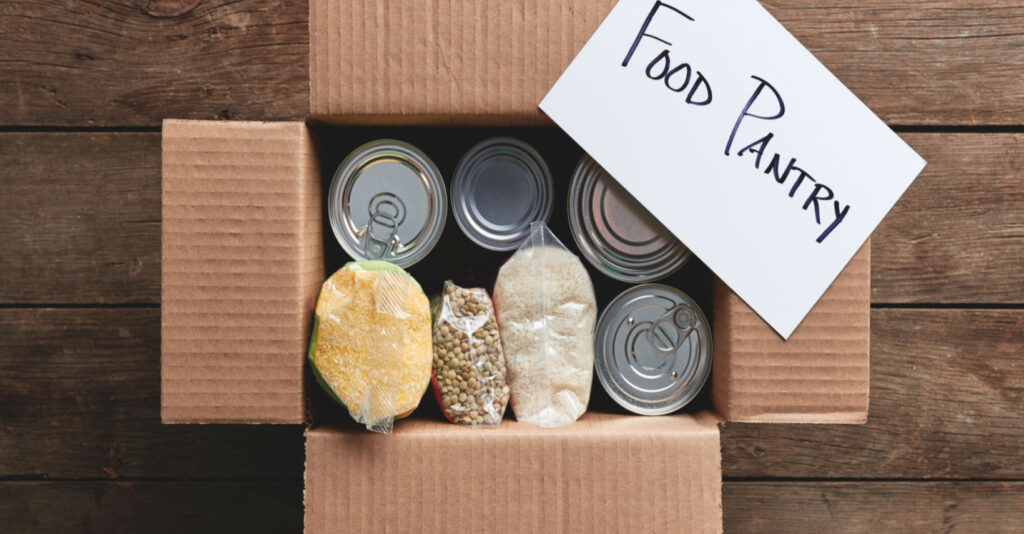In 2022, finding ways to get groceries every week can be a struggle. Inflation is getting worse and goods and services are more expensive than ever. Whether you have a large family, a small family, or it’s just you, grocery shopping might be a considerable burden and a significant dent in your budget. In this article, we will be discussing several ways for you to find free or cheap groceries to help you make ends meet. If you need some new tips for beating inflation at the grocery store, keep reading to learn more.
Couponing
One huge way to save money at the grocery store is by couponing. Whichever grocery store you decide to coupon at, know that you can save big money if you use coupons to subtract money from your total bill. Some coupons can be clipped from your local grocery store’s weekly ad, while you can find others on the store website or the supermarket’s loyalty app. No matter how you clip your coupons, they can save you a ton of money at the register, leaving your grocery bill close to zero or (sometimes) free.
Shop for Groceries at Dollar Tree
Another great tip for saving money at the grocery store and finding cheap groceries is shopping at Dollar Tree. At Dollar Tree, everything cost’s just $1.25, no matter what the item. You can find a wide variety of groceries at Dollar Tree, and they even have a refrigerated and freezer section. While you won’t find produce or fresh items at Dollar Tree, you will find canned and frozen goods. So if you struggle to make ends meet, check out this national chain to make a balanced and cheap meal at home.
Find Imperfect Produce
If you are shopping in the produce section, hunt for produce that might look a little bit imperfect. For example, check out apples with bruises, avocados with spots, and asparagus that might look a little close to expiring. While these might not be the most appealing pieces of produce, they will be the cheapest. They may already be on sale, or you could ask an employee for a discount at the register. Sometimes, they will even give you the damaged product for free! Ugly produce tastes just as good as perfect fruits and veggies, so don’t shy away from these cheaper options.
Look at Sale Aisles
Most grocery stores will have a sale section. Sometimes, this section will be in the produce section for damaged items, and sometimes, it will be on the end-cap of an aisle and feature items from various parts of the store. These sale aisles will usually have a lot of things that have either been damaged or returned by customers. While these items may not be free, they are generally deeply discounted. Often, the sale section will have bread and other staples you were already going to buy, so be sure to check them out for the best deals.
Head to a Farm
Going to a farm can also be a great way to find cheap or free groceries if you live in a rural area. Many people find ways to barter or trade with farmers to obtain free groceries. For example, some people volunteer to work a few hours a week at a farm in exchange for produce or meat. Even if you don’t want to work at a farm, consider trying to exchange some goods or services for farm products, especially if you already have a relationship with a local farmer. And of course, don’t forget to visit farmer’s markets and roadside stands, where you can often get great deals on freshly grown produce.
Combine Random Leftovers/Ingredients
In this modern age, you can use many different apps and websites to combine ingredients you have left over in your fridge. For example, if you only have pasta, tomato sauce, and sausage, you can find websites that will give you recipes for cheap, easy meals with few ingredients, so you don’t need to go out and buy anything new to make dinner. While this isn’t necessarily a tip for finding cheap or free groceries, it is a tip that can prevent you from going to the grocery store and buying something you don’t need.
Dumpster Diving
While it might initially seem gross, dumpster diving can be a great way to find and distribute free food for yourself or others. First, however, you should check out your local laws surrounding dumpster diving to determine the practice’s legality.
You can go dumpster diving at nearly any store, but grocery stores often throw away items close to their expiration date. Be sure to take precautions like wearing gloves, close-toed shoes, and clothes you don’t care about before you dumpster dive. Watch out for dangerous items like sharp needles and other hazards. Bring a flashlight so you can see what you’re doing. Then, get in that dumpster and get messy!
Grocery Sharing Apps
Grocery-sharing apps and websites are another great way to get genuinely free groceries. For one, you can check out local Facebook pages such as Buy Nothing to find various items people give away, including food. However, a couple of apps are specific to finding free and cheap groceries for people in need. Two of these apps are TooGoodToGo and OLIO.
TooGoodToGo
TooGoodToGo is an app that helps fight food waste worldwide in major cities. While the app isn’t currently available everywhere, it has likely touched down around you if you live in a major city. TooGoodToGo connects users with restaurants and stores that have unsold food at the end of the day. And they offer bags or meals of unsold food to customers for one low price.
For example, when buying bags from bakeries or coffee shops, you may be able to get a dozen croissants or donuts for as little as $3 or $4 a bag. While this food won’t be free, it is incredibly cheap. However, you don’t get to choose what you get, so it can be a bit of a gamble.
OLIO
OLIO is a food-sharing app that has been designed for millions of users to be able to give away food and other household items to their neighbors in need. OLIO operates by location, so after putting in your general region and the mileage to which you want to extend your search range, you will see everyone giving away items in your area. From there, you can reach out to those listing the items to arrange a meeting or exchange to get them. Everything on OLIO is free since it’s a nonprofit designed to eliminate food waste and help your neighbors.
Food Pantries or Food Banks
If you truly need help making ends meet in terms of groceries, you can always try to seek out local food pantries or food banks in your area. Food banks are nonprofit organizations that provide free food to those who cannot afford to eat. Food pantries can range from small, local cabinets to full-scale organizations operating off donations. Sometimes, you can find “take some, leave some” food pantries, while other times, you may be able to look for soup kitchens or other local organizations that distribute hot meals.












